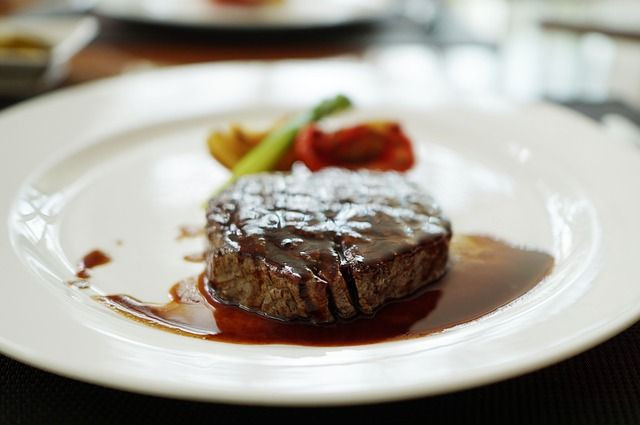Money In Medicine: Docs Who Eat Pharma-Sponsored Meals More Likely To Prescribe Brand Name Drugs

A new study published Monday in JAMA Internal Medicine suggests that pharmaceutical companies can subtly influence how doctors prescribe drugs with nothing more than the gift of a free meal.
The researchers analyzed the prescription records of physicians who were compensated through Medicare Part D in 2013 and cross-referenced them with data taken from the federal Open Payments Program, which tracks financial relationships made between the pharmaceutical industry and individual doctors and hospitals. Focusing specifically on four popular brand-name drugs used to treat chronic conditions like cardiovascular disease and depression, the authors found a clear link: Doctors who attended even a single industry-sponsored meal aimed at promoting these drugs prescribed them more often than those who skipped the meetings. And the more meals a doctor treated themselves to, and the more expensive they were, the more they prescribed the promoted drug.
“The receipt of industry-sponsored meals was associated with an increased rate of prescribing the promoted brand-name medication relative to alternatives within the drug class,” the authors wrote.
A Nudge In The Wrong Direction
For instance, the researchers found that doctors who never took advantage of a free meal centered around nebivolol, currently the most popular beta-blocker on the market, only prescribed it 3.1 percent of the time they prescribed that class of drug. Those who received nebivolol-promoted meals on four or more days throughout the latter half of 2013, however, prescribed it five times as much, 16.7 percent of all beta-blocker prescriptions. The same pattern held for statins, antidepressants, and ACE inhibitors. Doctors who received meals also prescribed more drugs in general than their clean-handed counterparts.
The researchers divided 155,849 physicians into four groups, depending on which one of the four classes of drugs they had prescribed more than 20 times that year through Part D, though there was plenty of overlap; 57 percent had extensively prescribed all four classes. Across the groups, the rates of receiving comped meals related to that specific class ranged from 2 to 12 percent.
Out of the $1.4 million pharmaceutical companies spent on these doctors, 95 percent went to free grub. Pricey as that might sound, the individual cost of influence certainly wasn’t — the average value of a meal ranged from $12 to $18.
Though the findings line up with other research on the subject, the authors note they can only show an association between financial incentives and a change in prescription habits, not a direct cause-and-effect relationship. Perhaps doctors who attended these industry-sponsored meals were already big fans of the drug and would have prescribed them more often no matter what. The study alone also can’t tell us whether these influences are necessarily bad — maybe doctors who grabbed a free meal promoting Pfizer's antidepressant Pristiq walked away with a greater understanding of how to treat the condition.
Other studies cited by the authors aren’t so optimistic, though, finding that industry-sponsored meals often come with a helping of inaccurate information about the promoted drug as well as its competitors and lead to increased prescription costs. Elsewhere, medical ethnicists and watchdogs have repeatedly warned about the damaging effects that financial incentives can have on doctors’ ability to provide the best health care for their patients. Because of that, many have called for a clearer system of accountability on the part of the pharmaceutical industry.
“Our findings support the importance of ongoing transparency efforts in the United States and Europe,” wrote the authors. “Small payments and meals should continue to be monitored in the United States and should be incorporated into the European pharmaceutical industry’s recent transparency initiative, which requires drug companies to publicly report payments to physicians with the exception of food and drinks.”
Dr. Robert Steinbrook, editor-in-chief of JAMA Internal Medicine, was less willing to play nice in his editor’s note accompanying the study.
“There are inherent tensions between the profits of health care companies, the independence of physicians and the integrity of our work, and the affordability of medical care,” he wrote. “If drug and device manufacturers were to stop sending money to physicians for promotional speaking, meals, and other activities without clear medical justifications and invest more in independent bona fide research on safety, effectiveness, and affordability, our patients and the health care system would be better off.”
Source: DeJong C, Aguilar T, Tseng C, et al. Pharmaceutical Industry–Sponsored Meals and Physician Prescribing Patterns for Medicare Beneficiaries. JAMA Internal Medicine. 2016.
Published by Medicaldaily.com



























